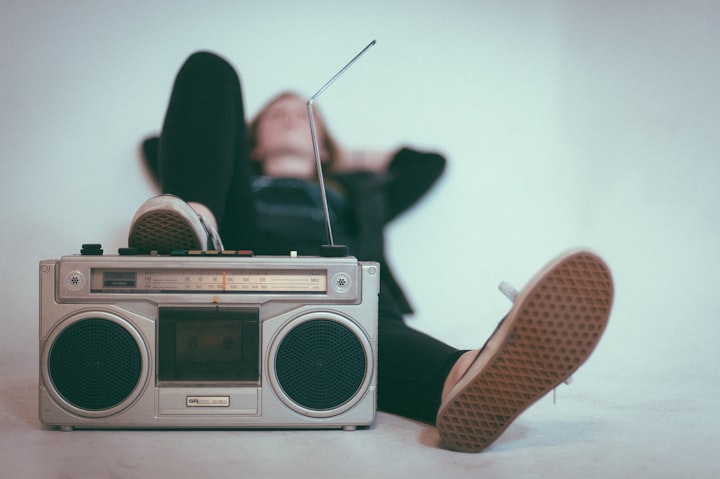Boulevard of Broken Dreams
It was the soundtrack to my mental and emotional breakdown. Could I bear to listen again?
I was in a mall bookstore in Delhi many years ago when the Green Day song Boulevard of Broken Dreams started playing on the radio. I flinched. I felt the familiar flutter in my gut and before I knew it, my heart was racing and my feet felt like lead.
Something in me was breaking, and I summoned every ounce of strength in me and fled out of the store. I ran into and out of the crowd, shoving strangers out of my way until I was sure I was safe, safe from the words, the tune, the song.
I locked myself in the women’s bathroom, placed my hands against the wall and dry heaved until I could see clearly again.

I listened to Boulevard of Broken Dreams on repeat after a difficult breakup in my mid-twenties. I would later find this man out to be a narcissist and sociopath with several female victims, many simultaneously, but at the time, I was full of self-loathing. There had been abuse, manipulation, and infidelity, but I had quietly agreed to shoulder all the responsibility for the degeneration of that relationship.
In the aftermath, I flew to Kolkata where I threw myself into my journalism work and writing, numbing out any feelings I might have had. It was particularly damning then that one night as I walked back to my hotel, I was attacked by two men on a motorbike. They pushed me down on to the street as people watched from the side of the road and from their windows, nobody coming to my aid.
A kind taxi driver saved me, yelling at me to jump in when the two men, ready to rip me to shreds, retreated in haste as he drove the car right at them, almost running us all over. I didn’t trust the taxi driver, yet I knew I was in trouble either way. A taxi seemed like the lesser of two evils; my intention was to jump out as soon as it gathered some speed. I didn’t have to. The driver dropped me off at my hotel and refused to take a single Rupee for his troubles.
I lay in bed for days, weeks, listening to the song on repeat. It spoke to me deeply, the idea of walking alone through life, knowing that there are a lot of broken things in the world, and that choosing solitude over conformity would require a price—a long, lonely walk through the boulevard of broken dreams—but some of us did it anyway, even as we questioned why.
I listened to the song, in fact, as I proceeded to have a mental and emotional breakdown, resulting in my not being able to leave my bed, let alone my apartment, for weeks.
My parents never knew. Most of my friends never knew. I had left the home of my traditional Indian parents to prove that my modern dreams were better than their old-fashioned ideals.
I had, so far, not found any evidence of that.

Over time, to everyone’s surprise—mostly mine—not only did I meet the love of my life, but we married and built a happy life together. I was no longer living in solitude. I had paid a price, but I had also been rewarded for staying true to my beliefs. My modern dreams had been realized.
It was time to rid myself of the last of my shackles. So, eight years after I had that first mental health breakdown, I sat down alone in my home in England that I shared with my husband, three-year-old son, and Labrador Retriever, opened up a blank page on the computer, and gingerly hit the play button on iTunes. I had decided to tell my story, albeit as a novel, and this song would help take me back to that time in my life when I was lost and turning on myself.
This technique—of listening to songs from a period you wanted to write about—had worked really well for my first novel, which I’d just completed. Many a middle-aged Indian aunty made an appearance in the book and I relied on the aunties of my early years to supply the material. To jog my memory, I had listened to old Hindi songs from my childhood that magically transported me to a different place and time, and gave me access to material that my otherwise logical brain had filed away to a compartment difficult to find. It also helped me work through some of the more difficult issues of my past.
There is, of course, nothing new to this. Neuroscientists have long acknowledged that music and memory are intricately connected. The hippocampus and the frontal cortex, two large areas of the brain associated with memory, are overburdened, every single minute, with information. Music helps retrieve some of it by providing rhyme, rhythm, and often emotional cues. It is why listening to songs played at our wedding helps us imagine the day in full technicolor or the pop songs of our teens draw out a smile.
As I had written that first novel, however, a strange thing had started to happen. I was getting desensitized to the songs. I had them on repeat so many times that the memories were beginning to shift. By the time I finished the book a few years later, the songs no longer had any lingering negative residue on them. The writing itself had proven to be therapeutic, of course. It had softened my jagged edges, smoothening them, much like parenthood had. It took away the anger and replaced it with compassion and something akin to empathy for those who had behaved badly.
More surprisingly, however, I found that fresh memories now formed around these songs. The first time I randomly heard one of the songs after my novel was finished, it wasn’t my childhood I thought of, but of me sitting in my bed, at my desk, on the floor, writing.
I had rewired my music with new memories.

For my second novel, I knew there was a good chance that the process would repeat itself. That I would get over the trauma related to this song and perhaps heal the leftover negativity from that relationship and my subsequent breakdown.
I was aware, however, that this second book was a much more personal novel, one that told of childhood sex abuse, of police corruption, and of female oppression. It was a near-universal tale of women beating down seemingly insurmountable odds to create lives of their own, but it was also very raw to me.
My own challenges had weakened me, broken me. And they had made me stronger. I was ready to write about them in as much detail as was necessary. But I had to do so cautiously and carefully, not tripping myself over in the process. Because as much as there was a chance of me moving beyond the fear of randomly encountering this song at a party or in the mall, there was also the fact that I could be risking my mental health by incessantly tormenting myself with it.
I did not have a good track record. Depression and anxiety routinely knocked at my door, and while I had become adept at recognizing them and hastily slamming the door, I had not yet been able to stop them from showing up unannounced in the first place. Every time they had appeared in recent years, I had become stronger, needed less help, and recovered more quickly.
When I flailed about, needy and desperate for attention, my husband never accused me of crying wolf, coming to my aid each time, showing me repeatedly that if all I wanted was attention, he had infinite amounts of it to give.
I crashed, sometimes. It would be a struggle to get out of bed. During these low periods, my husband quietly took over household duties, pulling open the curtains in our room to let the light in while I pushed myself further under the covers. He held my hand and walked me through the crisis or whatever trigger had set it off, offering a shoulder when needed, a stern reality check when necessary. He was always gentle and kind. He knew I could be emotionally fragile.
Was I then setting myself up? Was this the mental health equivalent of giving a drunk a drink?
There was only one way to find out.
That evening when my husband was at work, with my three-year-old safely tucked into bed, I logged into my computer and with trembling fingers, opened up a blank document, loaded up Green Day on iTunes, and started to type.

Here is how this ends: Nothing happened. The words flowed, three thousand of them that first night, as if I had opened the prison gates and they were free at last. They gushed out, tripping over one another in their hurry to leave my mind and find a new life on the page. I finished the novel within weeks.
I played Boulevard of Broken Dreams on repeat that first night and every night after. I felt sad initially, a melancholy that spread evenly over my heart, for a time in my past that was so full of abuse and strife. But I was no longer that woman and while I felt pain and anger on her behalf, I no longer felt it on mine. I could write her story with distance and with kindness.
The song quickly became one of my favorites once again. This time, it wasn’t the long and painful walk through life that stood out to me, but the directive to check my vital signs to know I’m still alive, and the understanding that as long as you’re alive, you can find a way to move forward, and as long as you can move forward, there is hope. The broken dreams get left behind eventually, and new ones appear on the horizon, waiting to be realized.
The song had lost its clamp over me. It wasn’t sitting with it for hours on end that did it; it was reclaiming my life that did. I realized that I’d been giving away my power for too long—to people, to situations, even to songs on the radio.
That night, I took it back and gave it to the only person it should ever have been with: Me.
Also by Natasha Khullar Relph:
About the Creator
Natasha Khullar Relph
Award-winning journalist. Bestselling author. Multipassionate entrepreneur.
Dog pillow. Cat cushion. Book nerd. Travel junkie. Insomniac. Bootaholic. Cake thief.








Comments (1)
A well written, dispassionate story of overcoming trauma.